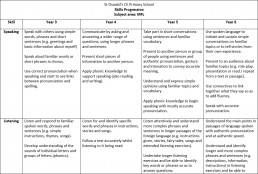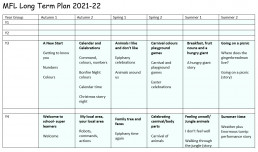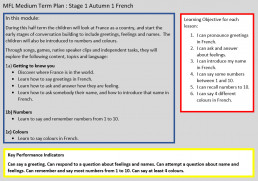Modern Foreign Languages
Our Intent
National Curriculum Guidance
“Learning a foreign language is a liberation from insularity and provides an opening to other cultures. A high-quality languages education should foster pupils’ curiosity and deepen their understanding of the world. The teaching should enable pupils to express their ideas and thoughts in another language and to understand and respond to its speakers, both in speech and in writing. It should also provide opportunities for them to communicate for practical purposes, learn new ways of thinking and read great literature in the original language. Language teaching should provide the foundation for learning further languages, equipping pupils to study and work in other countries.”
Our curriculum for languages aims to ensure that all pupils:
- Understand and respond to spoken and written language from a variety of sources, and in different contexts, to develop enthusiasm and enjoyment, allowing children to flourish and gain confidence
- Inspire children through a creative approach to speak with increasing confidence, fluency and spontaneity, finding ways of communicating what they want to say, including through discussion and asking questions, and continually improving the accuracy of their pronunciation and intonation.
- Can write at varying length, for different purposes and audiences, using the variety of grammatical structures that they have learnt
- Begin to discover and develop an appreciation of a range of writing in the language studied.
Our Implementation
The key areas of implementation we use are:
- Planning documents
- Progression map
- Long Term Plan
Flow Chart
The flow chart serves as an overview of how the subject is taught to ensure consistency in the following areas:
- Lesson structure
- Assessment
- Learning environment
- Resources
- Metacognitive scaffolding including knowledge organisers
- How we enhance the curriculum e.g. visits, celebrations, theme weeks
Impact
At St Oswald’s we see our children flourish through the wide-ranging curriculum to provide them with. We strive for the whole curriculum to be exciting, engaging and for all children to feel a sense of success.
In Modern Foreign Languages, we aim for the impact to be:
- Children understand the value of learning a new language.
- Children are aware of the links between languages across the world.
- Children enjoy learning being introduced to a new language, acquiring basic skills and vocabulary.



